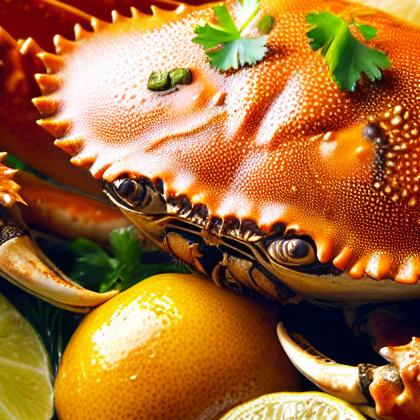Showing results for 'Soft-shell crab'
close
Soft-Shell Crab

Soft-shell crab is a culinary term for crabs which have recently molted their old exoskeleton and are still soft.Soft-shells are removed from the water as soon as they molt to prevent any hardening of their shell. This means that almost the entire animal can be eaten, rather than having to shell the animal to reach the meat. The exceptions are the mouthparts, the gills and the abdomen, which must be discarded.]The remaining, edible part of the crab is typically deep fried.
Soft-shell crab Properties:
| Food Property | Type | Description |
|---|---|---|
| Texture | Tenderness | Soft-shell crab has a tender texture due to its young age and the fact that its shell is still soft and edible. |
| Moisture | Soft-shell crab has a moist texture, as it retains its natural moisture content when cooked properly. | |
| Flavor Profile | Sweet | Soft-shell crab has a slight natural sweetness that is enhanced when cooked. |
| Umami | Soft-shell crab has a rich, savory umami flavor that is characteristic of seafood. | |
| Salty | Soft-shell crab can have a hint of saltiness from the sea water it inhabits. | |
| Aroma | Volatile Compounds | Soft-shell crab has a unique aroma that is released when cooked, made up of various volatile compounds. |
| Nutritional Value | Macronutrients | Soft-shell crab is a good source of protein and healthy fats. |
| Micronutrients | Soft-shell crab contains various vitamins and minerals, such as vitamin B12 and selenium. | |
| Fiber | Soft-shell crab does not contain significant amounts of fiber. | |
| Color | Natural Pigments | Soft-shell crab has a natural reddish-brown color when cooked. |
| Cooking Behavior | Heat Conductivity | Soft-shell crab cooks quickly due to its tender texture and high heat conductivity. |
| Oil Absorption | Soft-shell crab may absorb some oil when fried, but it is generally not considered oily. |
Food Pairing App - Version 1.2.0
